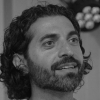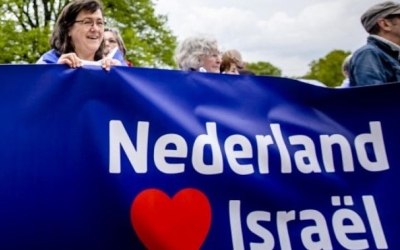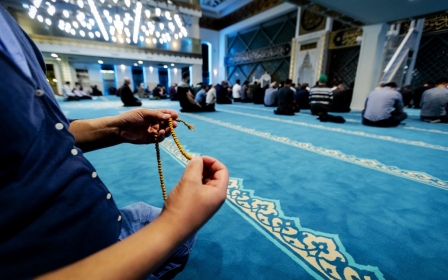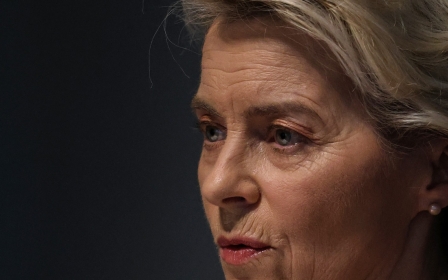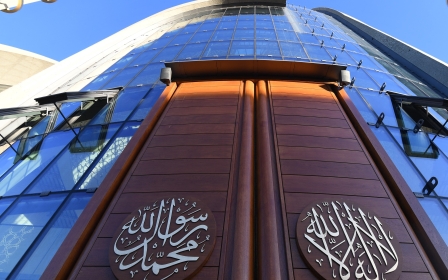The rise of Geert Wilders: How European racism dehumanises Palestinians
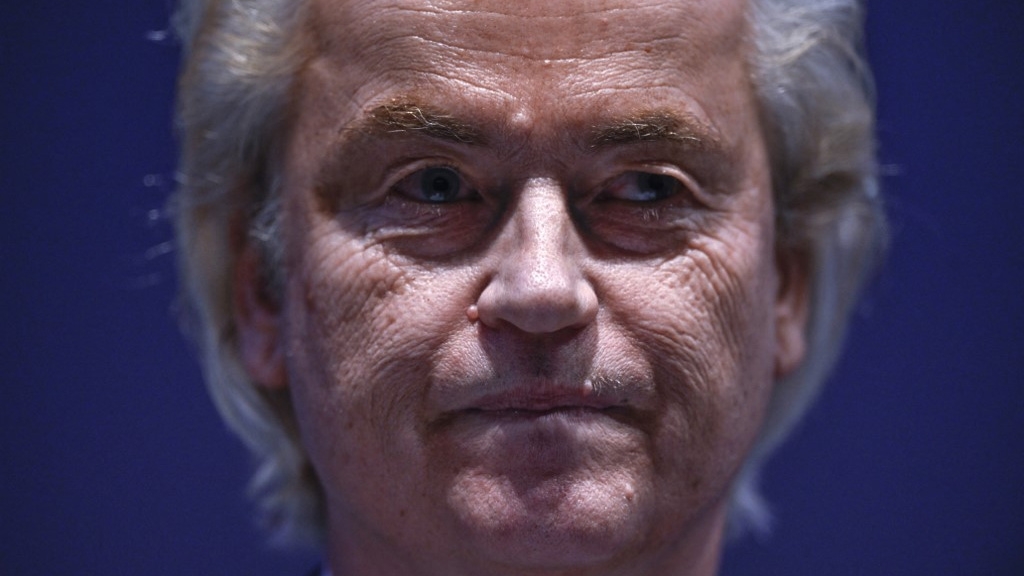
“Europe is indefensible,” said Martinican poet Aime Cesaire. He also wrote: “A civilisation that uses its principles for trickery and deceit is a dying civilisation.”
Today, another European country has become morally bankrupt, as the Party for Freedom (PVV), led by Dutch populist Geert Wilders, won the latest general elections. His anti-Islam party is known for its promises to ban dual nationality, the headscarf and the Quran, while aiming to reject all new asylum claims.
The PVV won 37 seats in the 150-seat house in last month’s elections, a landslide victory.
It may not offer much reassurance, but the figure of Wilders is akin to the zombie that emerges and leeches onto the “Other” as the European continent decays. Europe can barely sustain itself through its politics of death in the Mediterranean Sea and Palestine, to name just a couple of examples.
Does it provide any relief that the figure of Wilders appears in different forms elsewhere, such as Hungary’s Viktor Orban or Italy’s Giorgia Meloni? Probably not.
New MEE newsletter: Jerusalem Dispatch
Sign up to get the latest insights and analysis on Israel-Palestine, alongside Turkey Unpacked and other MEE newsletters
We cannot, however, fixate on the figure of Wilders as a convenient, and too simplistic, personification of evil. Granted, he stretches “acceptable” discourse, shifting us towards even more hateful speech and anti-democratic propositions. But overemphasis on such figures performs a deceitful trick: the politics of the Netherlands has long since plunged into the abyss, dragging us along. For decades, the centre right and the liberals have undermined the rule of law, eroding institutions they claim to uphold.
Throughout Europe, illiberal liberals have adopted anti-immigration rhetoric, ostensibly to contain the far right but, in reality, normalising hate and undermining human rights. Deep down, illiberal liberals know which lives they feel are worth preserving, and which can be destroyed.
Deep-seated racism
Many are complicit, including Dutch parliamentary journalists who giggle about Wilders’s antics, affectionately dubbing him “Geert Milder” as he seemingly disavowed some of his extremist ideas.
Similarly, in recent weeks, protesters calling for human rights and an immediate ceasefire in Gaza have been framed by journalists and columnists as people supporting Hamas, which is classified as a terrorist organisation in the UK and other countries. Dutch intellectuals have remained silent on Israel’s ethnic cleansing, with more than 18,000 Palestinians killed so far, while stumbling over the slogan “from the river to the sea”.
Follow Middle East Eye's live coverage for the latest on the Israel-Palestine war
The success of Wilders can rightfully be understood as a protest vote: citizens feel unheard, grappling with precarity and haunted by economic turbulence. These are valid political concerns. But little analysis in the Netherlands has acknowledged the deep-seated racism that is now being mobilised.
Quite the opposite; instead, we have seen a mind-boggling breakdown of the motivations of PVV voters. Its constituents have been described as in favour of the party’s economic tenets, which are exaggerated as “left-leaning”, but against its racial underpinnings. This nonsensical separation serves only to normalise racism and Islamophobia - yet it is repeated ad nauseum.
Wilders mobilises 'the people' along ethnic and racial lines, without intervening in class dynamics. History shows this will not lead to anything good
In his book Returning to Reims, French sociologist Didier Eribon is more forthright. Over the years, his parents, part of the French working class, shifted their support from the Communist Party to the far-right National Front. How can this larger shift, visible elsewhere in Europe, be explained?
Eribon writes that racial categories did not accrue political significance when his parents voted for the left. The us-them divisions were along class lines, between workers and bosses, the exploited and the exploiters. But this solidarity - if it ever existed - has eroded, being replaced by “us” (white natives) versus “them” (migrants, Muslims, foreigners and asylum seekers).
In the Netherlands, this political explanation is largely ignored. We are bearing witness, once again, to the denial of racism, even as the latest elections were won by a far-right party rooted in racism. It is maddening.
Structural violence
As if all of this was not sufficiently torturous, the liberal plea is still “to listen to the PVV voter and take them seriously”. Really, again? The deeper problem is rather that there is too much attentiveness to far-right political voices. This is what made their hateful ideas go mainstream in the first place.
Wilders mobilises “the people” along ethnic and racial lines, without intervening in class dynamics. History has shown us this will not lead to anything good.
Difficult times have befallen us, my friends; Europe is dying.
Above, I noted that illiberal liberals know which lives can be destroyed. This is why the dehumanisation of Palestinians is intricately interwoven with the treatment of Muslims, refugees and people of colour across Europe. It is also why what happens “over there” affects us “over here”. Many Europeans remain indifferent to the suffering of Palestinians, just as they turn a blind eye to dehumanisation “over here”.
As to why “the people” fail to understand our concern over what is unfolding in Palestine, could it be that a significant chunk of the European population has a different collective memory? Were they brought up with different stories, viewing history from a different perspective?
Do we recognise ourselves in how Europe treats the Palestinian question not because there is an ethnic cleansing of migrants in Europe, but because we are subject to the same double standards, racism, dehumanisation, flawed analogies, and absurd rationalisations that condone injustice? Despite our attempts to belong, we are still not seen as equals.
This revelation gives me hope. The masks have fallen, laying bare all the lies, distractions and political machinations. The structural violence and racism was already evident in the Dutch child benefits scandal, and in the drowning of migrants in the Mediterranean Sea. Today, Fortress Europe is wobbling.
“But they hate us,” a good friend retorts - not a child, but an adult man. A part of this country hates us, yes, but we cannot respond with hatred. Our answer must be love; a radical, tough love. “Let this radicalise you rather than lead you to despair,” wrote activist Mariame Kaba.
Perhaps now, it is especially important to preserve what we have: our dignity and love for life.
The views expressed in this article belong to the author and do not necessarily reflect the editorial policy of Middle East Eye.
This article is available in French on Middle East Eye French edition.
Middle East Eye delivers independent and unrivalled coverage and analysis of the Middle East, North Africa and beyond. To learn more about republishing this content and the associated fees, please fill out this form. More about MEE can be found here.


